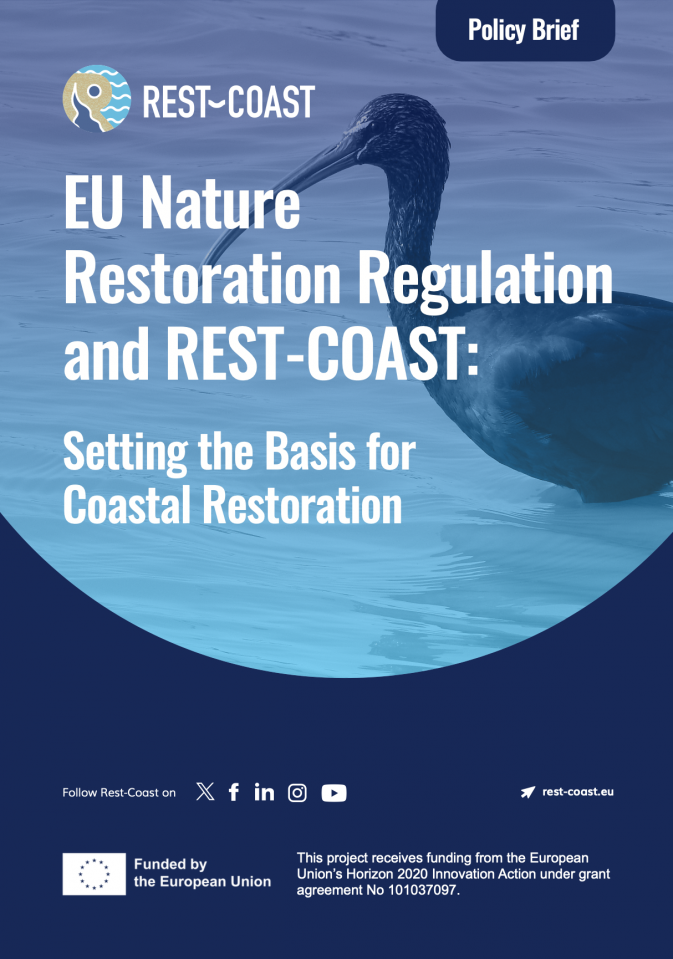
REST-COAST develops a policy brief to address the EU Nature Restoration Regulation
We are pleased to announce the release of REST-COAST's first policy brief, which aims to support coastal ecosystem restoration. This document outlines how our tools and strategies can help implement the EU Nature Restoration Regulation.
Coastal regions, home to about 40% of the EU's population, are important ecosystems that provide essential services, such as food production, water quality maintenance, and carbon sequestration to help address climate change. However, these ecosystems, including seagrass meadows and salt marshes, face significant threats, with only 8% in good conservation status. Human activities, such as overfishing, pollution, and climate change, have led to their degradation, resulting in loss of biodiversity and reduced ecosystem function.
The EU Nature Restoration Regulation, which takes effect in August 2024, offers an important opportunity to tackle these challenges. It sets legally binding targets to restore 20% of the EU’s land and marine areas by 2030 and aims to recover all degraded ecosystems by 2050. The REST-COAST project is designed to address barriers to coastal restoration and to promote these efforts. By bringing together ecology, engineering, economics, and policy experts, REST-COAST presents restoration strategies across nine pilot sites in the EU’s most vulnerable coastal areas.
This policy brief explains how REST-COAST’s tools and Coastal Restoration Platforms (CORE-PLAT) can assist in implementing the Nature Restoration Regulation. It highlights the need for coordinated governance, large-scale restoration initiatives, and long-term commitments to ensure the health of coastal ecosystems. The findings stress the importance of reducing pressures on these ecosystems and encouraging collaboration among stakeholders to improve coastal ecosystem services and enhance adaptation to climate change.
We invite you to read the full policy brief for a more detailed understanding of the given recommendations.